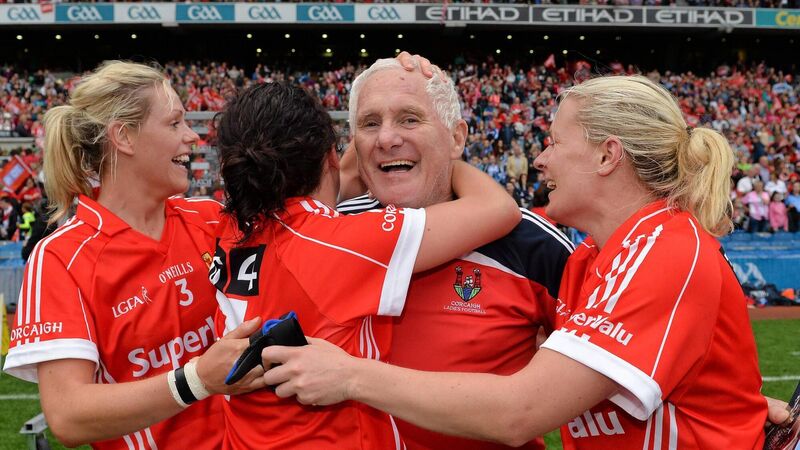Kieran Shannon: Above all else, Éamonn Ryan provided his players with invaluable life skills

Éamonn Ryan celebrates with Angela Walsh, left, Geraldine O'Flynn, and Deirdre O'Reilly, right, after Cork's victory over Dublin in the 2014 All-Ireland final. Picture: Brendan Moran/Sportsfile
‘Welcome to coaching. What a privilege to be a coach — to have the opportunity to guide young people in their sport participation. As a coach think of yourself as being in the ‘positive persuasion’ business. Successful coaching is much more than just winning contests. They help athletes master new skills, enjoy competing with others, and develop self-esteem. Successful coaches not only are well versed in the technical and tactical skills of their sport, but they also know HOW to teach those skills to young people. And [they] not only teach sports skills, they also teach and model the skills athletes will need to live successfully in our society… Prepare yourself to use your power to do good.’
While the opening page of Rainer Martens’ now reads like such a summation of Éamonn Ryan’s philosophy it’s as if it was a foreword penned by the great Corkman himself, there was a time when it severely shook and altered it.








